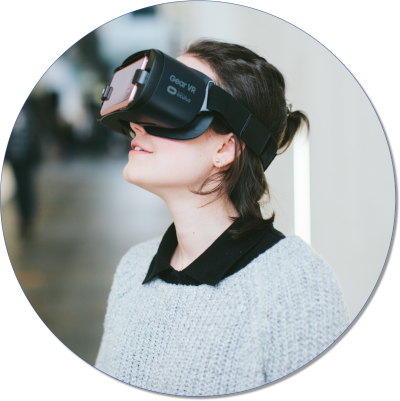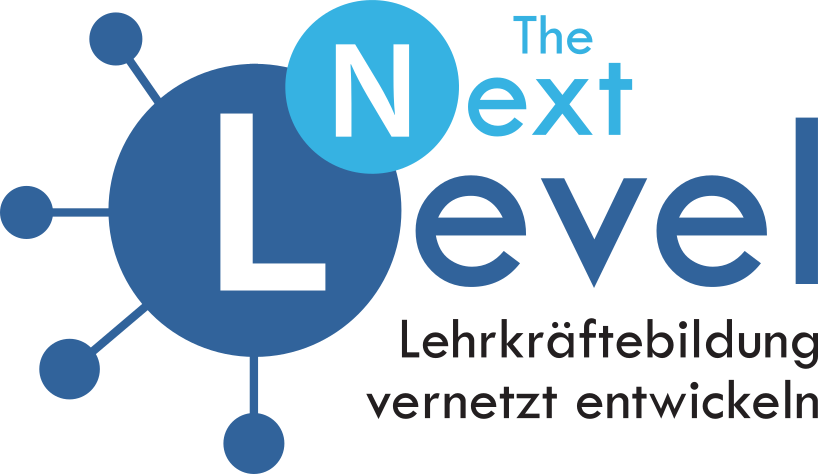Sebastian Breitenbach, M.A.
er/ihn, he/him
BMBF Projekte - The Next Level und Digi_Gap TP VR Lernangelegenheiten, Aufzeichnungstechnik, Digital Learning
Sprechzeiten vor Ort: Dienstag 7:30-16:00 Uhr (nach Vereinbarung)
Raumnummer: SKW 03.C116
Telefon: 069/798 – 23314
E-Mail: s.breitenbach@em.uni-frankfurt.de
VITA
Studium
- 2018 Eröffnung des Promotionsverfahrens
- 2015 Ende des Studiums, Abschluss Magister Artium
- 2007 Stipendium bei der Studienstiftung des deutschen Volkes
- 2005 Studium der Musikwissenschaft (Hauptfach), Geschichte und Pädagogik (Nebenfach) an der Johann Wolfgang Goethe-Universität Frankfurt/Main
Beruflicher Werdegang
- seit 2015 Arbeit als Wissenschaftlicher Mitarbeiter im Projekt "Level – Lehrerbildung vernetzt entwickeln" und dem Nachfolgeprojekt "The Next Level"
- 2009-2015 Mitarbeit als studentische Hilfskraft im Fachbereich Pädagogik, später bei der Akademie für Bildungsforschung und Lehrkräftebildung
- 2007–2009 Mitarbeit als studentische Hilfskraft im Fachbereich Musikwissenschaft
Lehre
- Breitenbach, S. (2019): Technische Anforderungen und Verfahren der Videodatenerhebung und Post-produktion in der Unterrichtsforschung. Workshop an der Bergischen Universität Wuppertal am 24.10.2019.
- Breitenbach, S. (2017): Technische Aspekte der Videoproduktion im Forschungskontext. Workshop an der Universität Duisburg-Essen am 27.11.2017.
- Appel, J.; Breitenbach, S.; Gattinger, T.; Schiffner, D. (2016): Videobasierte Online-Lehr-Lern-Plattform VIGOR. Vortrag im Rahmen des Netzwerktreffens der Projekte in der Qualitätsoffensive Lehrerbildung in Hessen und Mainz am 15.09.2016.
- Glaser, O.; Rauterberg, T., Breitenbach, S. (2016): Videobasierte Lehrmodule. Technische Aspekte der Videoaufzeichnung und -nachbearbeitung. Workshop an der WWU Münster im Rahmen der DLR-Workshop-Veranstaltung am 16./17.06.16.
- Breitenbach, S. & Appel, J. (2013): Videographische Softwarepakete in der Unterrichtsforschung – Ein systematischer Vergleich vor dem Hintergrund forschungsmethodischer Aspekte. Vortrag an der 2. Frankfurter Tagung zu Videoanalysen in der Unterrichts- und Bildungsforschung, Frankfurt/Main.
- Breitenbach, S. (2012): Technische Aspekte einer Videostudie. Workshop an der Frankfurter Tagung zu Videoanalysen in der Unterrichts- und Bildungsforschung, Frankfurt/Main.
Veröffentlichungen
- Breitenbach, S. (2020): Development of a simulation model regarding school instruction interaction for use in a VR classroom simulation for pre-service teachers. (eingereicht & angenommen)
- Breitenbach, S. (2017): Clasivir. Classroom Simulator in Virtual Reality. Poster im Rahmen der DGfE-Tagung Universität 4.0, Berlin vom 3.11.2017–4.11.2017.
- Breitenbach, S. & Appel, J. (2016): Vergleich von Software-Paketen zur Analyse audiovisueller Daten. In: U.Rauin, M.Herle & T. Engartner (Hrsg.), Videoanalysen in der Unterrichtsforschung. Methodische Vorgehensweisen und Anwendungsbeispiele. Weinheim: Beltz Juventa.
- Breitenbach, S. & Herrle, M. (2016): Datenerhebung. In: U.Rauin, M.Herle & T. Engartner (Hrsg.), Videoanalysen in der Unterrichtsforschung. Methodische Vorgehensweisen und Anwendungsbeispiele. Weinheim: Beltz Juventa.
- Breitenbach, S. (2016): Aktuelle Produkte und Literatur zur softwaregestützten Videoanalyse (Support-Teil). In: U.Rauin, M.Herle & T. Engartner (Hrsg.), Videoanalysen in der Unterrichtsforschung. Methodische Vorgehensweisen und Anwendungsbeispiele. Weinheim: Beltz Juventa.
- Breitenbach, S. (2016): Exemplarische Zusammenstellung von Video- und Audioequipment (Support-Teil). In: U.Rauin, M.Herle & T. Engartner (Hrsg.), Videoanalysen in der Unterrichtsforschung. Methodische Vorgehensweisen und Anwendungsbeispiele. Weinheim: Beltz Juventa.
- Breitenbach, S. (2016): Post-Production: Häufig genannte Probleme und Lösungsmöglichkeiten (Support-Teil). In: U.Rauin, M.Herle & T. Engartner (Hrsg.), Videoanalysen in der Unterrichtsforschung. Methodische Vorgehensweisen und Anwendungsbeispiele. Weinheim: Beltz Juventa.
Forschungsgebiete
- Development of CLASIVIR (Classroom Simulator in Virtual Reality)
My current research aims to develop a classroom simulator for pre-service teachers in virtual reality classed CLASIVIR. In this VR classroom, pre-service teachers will take the role of a teacher and instruct virtual student agents.
The preliminary goal is to develop an algorithm that models typical classroom behaviors of computer-controlled student agents in K-12 classrooms derived from empirical studies. The development of this algorithmic simulation model is currently work in progress. It is based on an extensive literature review (410 sources stemming from psychometry, educational psychology and pedagogy and AI design). It draws inspiration from old, established and newly developed school classroom simulations like simSchool (Gibson 2009, Gibson 2014), Breaking Bad Behaviors (Lugrin et al. 2016), VCS (Skrødal 2010), IVT-T (Delamarre 2019) and TeachLivE (Nagendran et al. 2013, Dieker 2017). In total, 45 school classroom simulations were analyzed for the implementation of their simulation model.
Once the development of functional – though ever incremental developing – algorithm is complete, it is planned to implement this algorithm in an upcoming HMD (head-mounted display)-based VR simulator, which is currently scheduled for development in its first rudimentary form in mid-2020. A non-graphical backend prototype of the simulation model has already been developed using C++/QT and SQL, but is continuously improved as the simulation model is further developed.
For more information regarding CLASIVIR please visit the Researchgate project page.
Literature
- Badiee, F., & Kaufman, D. (2015). Design Evaluation of a Simulation for Teacher Education. SAGE Open, 5(2), 1–10. https://doi.org/10.1177/2158244015592454
- Delamarre, A., Buche, C., & Lisetti, C. (2019). AIMER: Appraisal Interpersonal Model of Emotion Regulation, Affective Virtual Students to Support Teachers Training. In Proceedings of the 19th ACM International Conference on Intelligent Virtual Agents (pp. 182–184). Paris, France: ACM. https://doi.org/10.1145/3308532.3329419
- Dieker, L. A., Hughes, C. E., Hynes, M. C. & Straub, C. (2017). Using Simulated Virtual Environments to Improve Teacher Performance. Journal of the National Association for Professional Development Schools, (3), 62–81.
- Gibson, D. (2009). Modeling Classroom Behaviors in Software Agents. In D. Gibson, Y. Baek. (Ed.), Digital Simulations for Improving Education (pp. 25–51). Hershey, New York: IGI Global / Information Science Reference.
- Gibson, D. (2014). Affective Processes as Network Hubs. In T. Bosse, J. Broekens, J. Dias, & J. van der Zwaan, T. Bosse, J. Broekens, J. Dias, & J. van der Zwaan (Eds.), Emotion Modeling: Towards Pragmatic Computational Models of Affective Processes (pp. 148–166). Cham: Springer International Publishing. https://doi.org/10.1007/978-3-319-12973-0_9
- Kaufman, D., & Ireland, A. (2016). Enhancing Teacher Education with Simulations. TechTrends, 60(3), 260–267. https://doi.org/10.1007/s11528-016-0049-0
- Lugrin, J.-L., Latoschik, M. E., Habel, M., Roth, D., Seufert, C., & Grafe, S. (2016). Breaking Bad Behaviours: A New Tool for Learning Classroom Management using Virtual Reality. Frontiers in ICT, 3, 1–21. Retrieved from http://journal.frontiersin.org/article/10.3389/fict.2016.00026
- Mark, D. (2009). Behavioral Mathematics for Game AI . Boston, MA, Cengage Learning PTR.
- Nagendran, A., Pillat, R., Kavanaugh, A., Welch, G., & Hughes, C. (2013). AMITIES: Avatar-Mediated Interactive Training and Individualized Experience System. In Proceedings of the 19th ACM Symposium on Virtual Reality Software and Technology – VRST 13. ACM Press. https://doi.org/10.1145/2503713.2503731
- Skrødal, S. (2010). Virtual Classroom Simulation. Design and Trial in a Preservice Teacher Education Program. University of Adelaide, School of Education. Retrieved from http://hdl.handle.net/2440/65251
- Yannakakis, G. N., & Togelius, J. (2018). Artificial Intelligence and Games . Springer International Publishing. https://doi.org/10.1007/978-3-319-63519-4
Projects
I’m currently working as a scientific assistant in the in the ABL (academia for educational research and teacher education) as part of the project The Next Level (follow-up project to Level - Linking Pedagogic Expertise through Video Enhanced Learning Scenarios). I'm responsible for the technical aspects of the videography in hessian schools and universities. This includes Audio/Video-Setups, consulting on optimal recording settings and doing complex postproduction with up to 5 cameras and multiple microphones (up to 12). We currently finished the production of about 1000 authentic school videos (including different camera perspectives). Furthermore, I developed the video metadata system for the platform VIGOR (Videographic Online Recorder), a learning platform where the videos are hosted and shared with pre-service teachers and cooperation partners in conglomeration with various learning scenarios.
I also participate as a member of the working group of the cross-german state project www.unterrichtsvideos.net in the lead by the University of Münster. This site is currently scheduled to go online at the end of 2020 and features a searchable video list for all school videos created during the Qualitätsoffensive Lehrerbildung (QOLB) from eight different german universities.
Weiterführende Links
Researchgate Projectpage Clasivir
Project The Next Level
Personal Website
|







